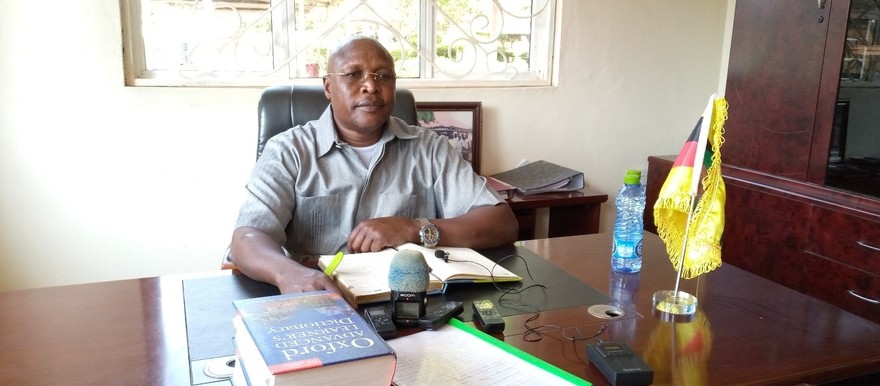The governor of Eastern Equatoria State Louis Lobong Lojore has formed a committee to listen to the grievances raised by a youth group, Monyiemiji Forum, over what they describe as unjust employment in Torit, Ikotos, and Lopit areas.
The eight-member committee, headed by the state advisor on security, Mathew Tombe Nehemiah, includes staff from the Relief and Rehabilitation Commission (RRC), ministry of labor, youth and sports, Torit Municipality, and the Justice Employees Chamber.
Last week, the Monyiemiji petitioned the state government alleging that they have been intentionally denied job opportunities by several NGOs, NNGOs, UN agencies, community-based and civil society organizations which they alleged were dominated by certain ethnic groups from within and outside the state including foreign nationals.
The RRC chairman in the state, Augustine Kanya Albert, said they will seek possible solutions to the issues despite the complexity of the matter and asked the Monyiemiji to give the government more time.
“Give us time so we can collect this investigation. We are going to go to the NGOs, we are going to push all these things and find out this is where the problem is,” Kanya said. “That is why for me, I stood here to say these two weeks is really little because of the procedures and the complexity of this issue, this issue is complex.”
The chairperson of the committee, during their first meeting with the Monyiemiji Forum at Odik-ye Amangat (the traditional parliament), told the Monyiemiji that the government received their petition and is committed to informing them on every step taken to resolve the matter.
Ohure Ernest, a member of the Monyiemiji demanded the public service ministry to ensure employment opportunities in the state are justified as enshrined in the Labour Act.
“We beg the office of public service to make sure that employment in Eastern Equatoria State at least has to be justified in a way that you as the government and the Monyiemiji should be able to work together,” Ohure said. “We are not separating, we are not throwing away the rest of the tribes, but the petition is calling them to refrain from the ideology that they have towards our communities.”
Another Monyiemiji member named Okito Mathew said the public service ministry and the RRC should always be present whenever there are interviews to distinguish between the locals and other nationals and foreigners. According to him, the Monyiemiji of Torit, Ikotos, and Lopit are the major victims of marginalization in terms of employment.
“So these greater Ikotos, Torit and Lopit, these are the people who are marginalized, to be honest, these people are left behind. When shall we also practice managerial positions, when shall we write projects when we can?” Okita asked. “Mr. Minister, people are getting into South Sudan claiming I am from Pajok, yet they are not from there. We know them one by one. What are you doing? Why don’t you help us?”
John Ewot, another youth, says employment should be given based on merit to favor the indigenous communities.
Torit Municipal Council Mayor, Joseph Ayee Oswaha, urged the Monyiemiji to be patient while the government seeks to address the matter but also tasked the government committee to commit themselves to find solutions to their complaints.
For her part, the minister of labor, public service, and human resource management, Agnes Florence Udwar, told the Monyiemiji to be calm and provide evidence to back their allegations.
The Monyiemiji demanded that interviews be conducted in places where project activities are implemented and that the position of officers, watchmen, cleaners, cooks, and drivers among others in Torit, Ikotos, and Lopa be assigned to the Monyiemiji of those particular counties in two weeks.
They also demanded that any NGO be it national or international should not employ someone from other places in Lopa, Ikotos, and Torit unless qualifications, experience, and skills required are not locally available.




